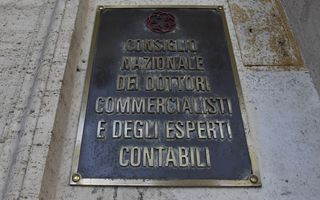(Finance) – “Review the mechanism for allocating resources for the tax credit for companies that invest in the single ZES of Southern Italy because with the one currently envisaged the bonus available is reduced to 17.6% of the percentage due provided for by the law. For this reason, while maintaining the tax credit due, it is necessary to provide for the effective credit a minimum threshold beyond which it should not go down”. The request comes directly fromThe National Council of Accountants following the provision with which the Revenue Agency determined at 17.6668% the percentage of the tax credit actually usable by companies that make investments from 1 January to 15 November 2024, specifically for the acquisition of capital goods intended for production facilities located in the single ZES. At the same time, according to accountants, “it is also necessary to increase the resources made available, currently set at 1,670 million euros, which at present have proven to be completely insufficient”.
According to the calculations of the National Foundation for Accountants’ Research, in fact, a small business located in Calabria, Campania, Puglia and Sicily, which would be entitled to a 60% tax credit on investments made, is entitled to a effective tax credit of 10.60% (17.6% of 60%). Instead, a medium-sized company located in Basilicata, Molise and Sardinia, which would be entitled to a 40% credit, is entitled to a effective credit of 7.06% (17.6% of 40%). The situation is getting worse especially for the large companies located in Abruzzo who, in exchange for a 15% credit due, obtain with the current mechanism an effective credit of 2.65% (17.6% of 15%).
The distribution mechanism provides for an initial reservation of resources with distribution in favor of all applicants who have made investments. In February 2025, companies that continue to invest will be able to count on new resources deriving from future waivers.
“It is absolutely necessary to review the mechanism for allocating resources and, without prejudice to the tax credit due, to provide for a minimum threshold beyond which the actual credit should not fall – he underlines Elbano de Nuccio, President of the National Council of Accountants –. Businesses have planned investments in the single ZES counting largely on resources deriving from the tax credit and obtaining an actual credit that is much lower than the one due forces a review of the financial planning prepared. Waiting for the further distribution of the credit, which will take place next year and whose amount is unknown, will not help businesses in this sense. For this reason, we hope for the improvement of an intervention aimed at the economic and social development of the country”.
“Due to the high number of requests from companies that have made investments in the single ZES, the tax credit has been significantly reduced and the resources made available have proven to be insufficient – he states Antonio Repaci, National Councillor of Accountants Delegate for Corporate Finance –. We hope that the government can increase the resources currently available to meet the needs of entrepreneurs who invest in a fundamental tool for the economic revival of the South”.
